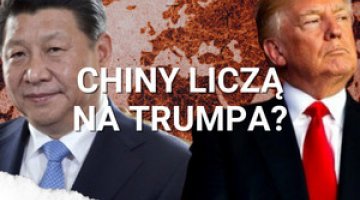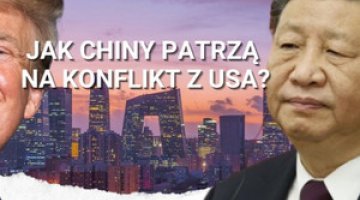The inauguration of the 20th Congress of the Communist Party of China

The 20th Congress of the Communist Party of China (CCP) began in Beijing on 16 October. The seven-day deliberations, attended by 2,296 delegates, will lead to the election of a new Central Committee (CC), formally the CCP’s most important organ, for the next five years It will be accompanied by the announcement of numerous other personnel decisions, including the election of the General Secretary (GS), the Politburo, the Politburo Standing Committee, the Central Committee Secretariat and the Central Military Commission (on the first plenary section of the new Central Committee). The congress is also an opportunity to identify new political and ideological directions for the party. On the first day, General Secretary Xi Jinping’s public report on the work of the 19th Central Committee was heard, comprehensively describing the state of the party and the country.
Following the inauguration of the congress, its participants switched to working groups, involving mostly classified meetings of delegates (general information on these is provided by a spokesperson). It is likely that a general secretary will be appointed by the new Central Committee on the final day (23 October), who will make a short public keynote speech. Once the meeting has closed, the new Central Committee will be constituted, which from then on will assume supreme power in the party. The first plenary meeting (First Plenum) will then be held, approving all internal appointments. In March 2023, the Convention’s recommendations for state positions will be adopted by the parliament – the National People’s Congress (NPC) – completing the cycle of political change in China PRC.
Commentary
- This year’s CCP Congress is a landmark one due to the scale of the challenges currently facing China and, consequently, the number of decisions that need to be taken. First and foremost, it will settle the issue of Xi Jinping’s continuation as General Secretary for a third five-year term (contrary to the informal party rules established in recent decades), and thus determine the continuation of his policies, including the centralisation of the party and state, the use of totalitarian methods of social control and an assertive international strategy. This year’s congress – in view of the worsening economic situation, the drift of economic reforms, the lack of prospects for an exit from the socially destabilising ‘zero COVID’ strategy – will also decide whether a compromise will be reached within the party on deeper reforms and solutions to structural problems.
- The report delivered by Xi Jinping at the opening of the 20th Congress contained no elements which had not previously been seen in the documents published in the last five years. On some points, the rhetoric was tougher, such as regarding the pursuit of reunification with Taiwan or referring to action against external ‘evil forces’ (the West led by the United States). Xi Jinping pointed to numerous internal threats, such as income disparity and an ageing population, and external threats – above all, the rivalry of great powers. He affirmed the maintenance of the ‘zero COVID’ strategy, the further strengthening of the CCP’s control over the People’s Liberation Army and the ‘success’ of the constitutional changes in the Hong Kong Special Autonomous Region. On socio-economic issues, there were references to the concepts of ‘shared prosperity’ (increasing redistribution) and dual circulation (shifting the burden of development to domestic consumption), but these were not explicitly named. A very voluminous part of the report was also philosophical and political reflections on Marxism-Leninism ‘with Chinese characteristics’.
- The deliberations of the congress are mostly secret, and the little reliable information which does make its way to the media is insufficient to assess the direction of discussions within the party apparatus. However, key policy directions could be signalled in the final speech of the new GS, who is expected to be Xi Jinping for a third term. Only the post-convention documents and from subsequent meetings of the Central Committee and its organs will allow a more detailed assessment of the political and socio-economic changes adopted over time. Similarly, personnel decisions will not be known until after the congress and, in the case of some of the state appointments, no sooner than next March after the NPC session, although in practice the recommendations of the outgoing leadership will be adopted during the ongoing deliberations. Only after all the changes have been announced will it be possible to try to determine the real extent of Xi Jinping’s power and the distribution of the power between the various interest groups in the Central Committee and the Central People’s Government.




